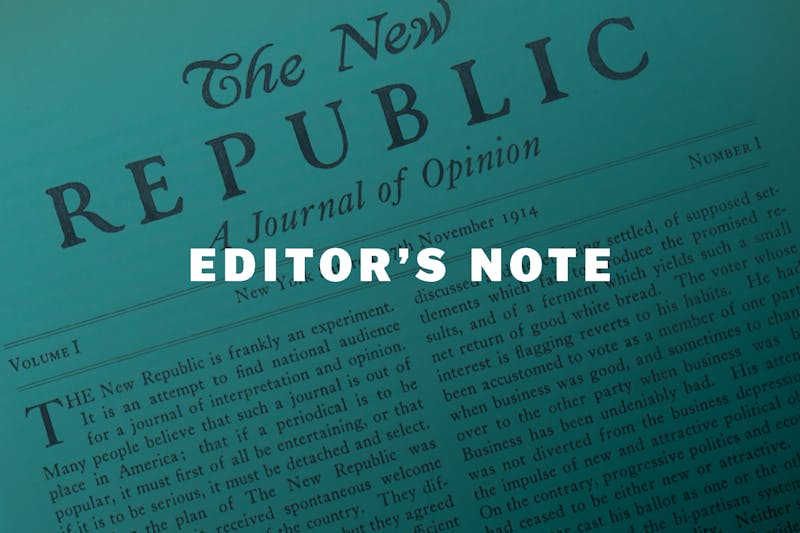“The New Republic is frankly an experiment.” First issue, first sentence, November 1914.

Over the years as a The New Republic reader, I’ve seen TNR invoke this line in different contexts with different inflections. (I quoted the whole paragraph it’s taken from last month, myself.) It always seemed bold. Of course, it is. The idea at the time of writing was that “national audience for a journal of interpretation and opinion” was a super-uncertain prospect: “Many people believe that such a journal is out of place in America; that if a periodical is to be popular, it must first of all be entertaining, or that if it is to be serious, it must be detached and select.” It would take a more refined historical understanding than I’ve so far developed to know what precisely Herbert Croly, our first editor, and the gang would have meant 103-plus years ago by entertaining. I expect it’s something like diversionary or lite. (Actually, are you a historian of early-twentieth-century American life or otherwise someone who’d know better than me? Please hit us up: hello@newrepublic.com.) Detached and select seems straightforward enough: maybe, of and for abstract intellectual reflection—vs. keyed to the urgency and relevancy TNR has gone for from the outset. Whatever, haters, we seem to have been saying, we’re an experiment!
Now over the months as a The New Republic editor, I’ve noticed this one word, frankly, standing out more. It’s come to feel slightly confessional—like a sort of poised admission: We know there’s not an especially overwhelming immediate consumer demand for our thing, what with the weird course it plots for itself, as a popular yet serious magazine, between entertainment and detached selection. But we believe in it. And we believe in it not just as an idea but as an institution—as something that can be meaningful and generative to people in their day-to-day lives. In 2018, the main experimental ambiguity for the The New Republic we have in mind—the central frankly—turns on whether there’s an audience for a liberal magazine that cares about more than shoring up liberal resistance to the regressive monstrosity that’s trying to pass itself off by way of manipulative nostalgia as conservatism. It turns too, and more broadly, on whether there’s an audience for a liberal magazine that wants to rethink American liberalism with us—on the premise that democracy can’t thrive merely on victory.
If that compound vision speaks to you, whoever you are, you’re our kind of person. In which case, we’d love for you to be a part of TNR’s future. You might want to connect with us at the email address above. Or you might even want to subscribe: newrepublic.com/subscribe. Thanks either way—and excelsior.
- J.J Gould